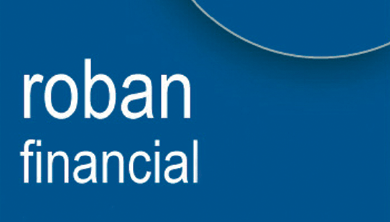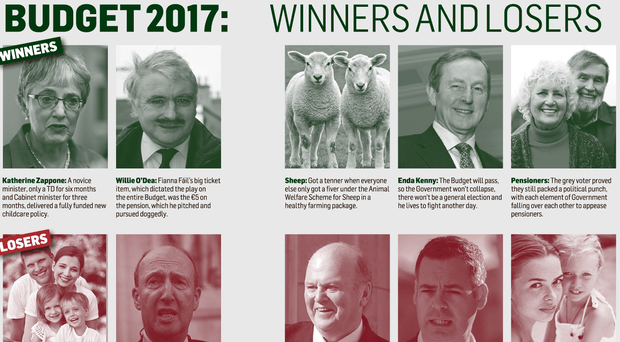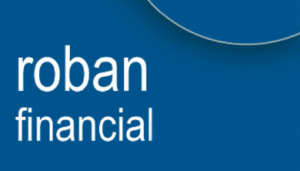Most of us probably listened to countless interviews yesterday with Michael Noonan in particular, regarding Budget 2017. It has been dubbed the “Fiver Budget” due to the fact that it gives a little to everyone. Many feel this is not good enough. Many more think Budget 2017 is too generous and have accused the Government of not being prudent enough.
However I think it is fair to say that the years of austerity budgets are over and we need not dread them quite like we did during the recession years.
On balance, it would seem most will be a little better off after this Budget. Overall Budget 2017 will help somewhat but will not dramatically improve living standards for most people.
So how will it help you?
USC
USC has been cut for lower and middle income earners – the three lowest rates have all been reduced and now stand at: 0.5%, 2.5% and 5.0%
In reality, The Irish Tax Institute pointed out that the USC changes will mainly accrue to those on lower pay.
A person on €18,000 will get a 15pc reduction in their tax bill.
The average worker will see a 2.7pc reduction in their tax bill, while those on €75,000 will see a 1.3pc reduction in their tax bill.
| Universal Social Charge
Rates from 1 January 2017 |
Employee | Self Employed |
| Income up to €12,012 | 0.5% | 0.5% |
| Between €12,013 and €18,772 | 2.5% | 2.5% |
| Between €18,773 and €70,044 | 5% | 5% |
| Between €70,045 and €100,000 | 8% | 8% |
| Income in excess of €100,000 | 8% | 11% |
Childcare
A Single Affordable Childcare Scheme to be put in place but no increase in child benefit.
The scheme (excluding the free pre-school years) is intended to replace all previous schemes and provide one single system of targeted and universal payments to help with the cost of childcare.
The first, targeted subsidy will be means-tested and paid in respect of children aged between six months and 15 years. The highest amounts – about €8,000 a year – will available to parents on the lowest incomes whose child is in up to 40 hours of childcare per week. It will be paid directly to the childcare provider which must be registered with Tusla, the Child and Family Agency.
The cut-off point for eligibility will be a net household income of €47,500. Under the scheme, the parents’ marital status will have no effect on how net household income is calculated.
From September 2017, there will also be a universal subsidy payable to parents of children aged six months to three years, of up to €80 per month – depending on how many hours the child is in childcare.
On a different note, Medical card coverage is to be made available for all children in receipt of domiciliary care allowance.
State Pension
The weekly rate of State Pension (Contributory) – Personal Rate will increase from €233.30 per week to €238.30 per week from March 2017.
Those in receipt of the State Pension will also benefit from the 85% Christmas Bonus for all Social Welfare Recipients
There will be a prescription cap for over 70’s down to €20 from €25 from March
Social Welfare Payments
All weekly social welfare payments to increase by €5 per week including the carer’s allowance, disability allowance and jobseeker’s benefit and allowance
Again all Social Welfare recipients will benefit from the 85% Christmas Bonus
Earned Income Credit
The Earned Income Tax Credit will be increased from €550 to €950 for Farmers & Self Employed.
This combined with the benefit of the cuts in the USC rates should mean gains in terms of take home pay for the self employed.
A married couple on one income from a self-employed person earning €55,000 will gain €778, or €15 a week. A couple in similar circumstances with the earner taxed on PAYE will gain €278 from the tax changes, or €5 a week.
This is seen as a step towards equalising treatment with PAYE workers.
In another benefit for the self employed, the Invalidity Pension is being extended to self-employed PRSI contributors from December 2017.
DIRT Tax
DIRT to be reduced every year until 2020 from 41% to 33%. This will bring it into line with the current rate of Capital Gains Tax.
Whilst this is welcomed, interest rates are so low at present, it will unlikely mean substantial savings.
Capital Acquisitions Tax
There was good news for those inheriting properties as the threshold which is the amount that one can inherit without incurring tax has been increased. The tax is known as capital acquisitions tax.
The amount a parent can pass on to a child has risen by €30,000.
The children can now inherit property or other assets to the value of €310,000 without paying tax. Amounts over this are taxable at 33pc.
For inheritances from other close relatives the threshold has also widened. It goes from €30,150 to €32,500, known as category B.
Those inheriting from someone they are not related to can now avail of a tax-free threshold of €16,250, up from €15,075.
There was no change made in the Budget to Family Home Relief. Nor was there a change announced to the current CAT rate of 33%.
Help to Buy for First Time House Buyers
An income tax rebate incentive is being introduced to assist first time buyers of new homes to help fund their deposit requirement. It will consist of a rebate of income tax paid over the previous four years up to 5% of the purchase price of up to €400,000. Where new homes are valued between €400,000 and €600,000 the maximum relief (i.e. €20,000) will continue to be available. This will apply to new build only and not to second hand house purchases. Applicants must take out a mortgage of at least 80% of the purchase price. This scheme will run until the end of 2019.
Whilst the fact that this relief has drawn criticism for the fact that it is available for first time purchasers of new homes only, the intention is that the initiative will kick start new home building at a more affordable level . The Construction Federation have broadly welcomed the measure.
Interest Relief – Rented Residential Property
An increase to 80% was announced to the amount of the deduction allowable for qualifying interest payments on monies borrowed to purchase, improve or repair residential rental property. This increase will apply to both new and existing mortgages.
The Government issued this flyer in relation to the Budget which highlights the main issues they have addressed; http://www.budget.gov.ie/Budgets/2017/Documents/Budget_2017_leaflet_pub.pdf
If you have any queries in relation to your financial affairs, please do not hesitate to contact us.


